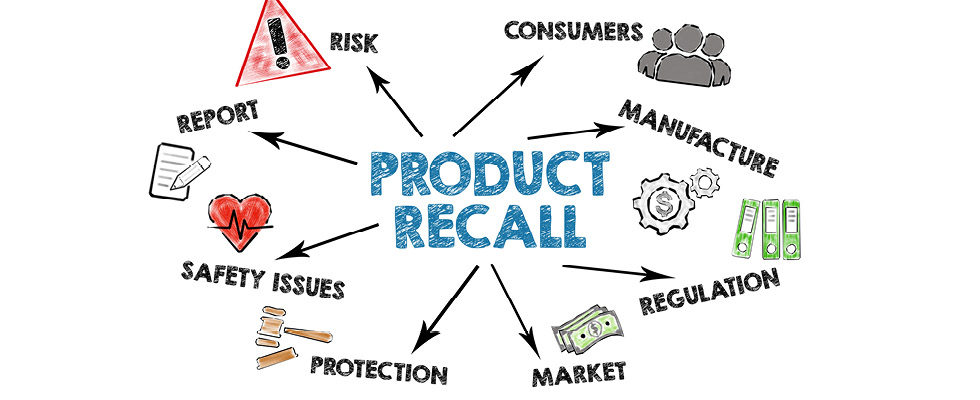
In 1972, President Richard Nixon signed the Consumer Product Safety Act, which created the U.S. Consumer Product Safety Commission (CPSC). The CPSC is an independent federal regulatory agency responsible for protecting the public from unreasonable risks of death or injury from consumer products.
Independent Agency
There are five CPSC Commissioners, and they are appointed by the president for seven-year terms. Only three of the commissioners can be from the same political party, and they serve seven-year terms. Once appointed, they act independently and do not directly or indirectly report to the president in order to ensure no biased decisions. From its inception, the CPSC has interacted with the propane industry. The commission considers propane itself, as well as the equipment and appliances that use and deliver it, to be “consumer products” subject to its jurisdiction.
Defective Valves
Industry veterans will recall one of the first major recalls that hit the industry. In the early 1980s, the manufacturers of appliance safety control valves — notably Honeywell and White-Rogers — were subject to CPSC recalls of control valves that were intended to shut off the flow of gas to the main appliance burner when the pilot light went out. Certain types of these controls (used primarily on water heaters and furnaces) would stick in the open position when the pilot went out, allowing unburned gas to flow through the main burner when the thermostat called for heat or hot water. This, of course, presented a serious hazard to the person attempting to light the pilot light. Serious injuries, lawsuits and CPSC recalls followed.
The resulting product recalls did not, despite the efforts of the control manufacturers, impose responsibility on propane retailers to find and remove the defective controls from customer locations. However, a few prominent distributors did voluntarily agree to participate in these recalls. At least one distributor ran into trouble when it was revealed that, despite promising to inspect customer locations for recalled controls on customer appliances, it made no serious effort to do so. The result was a substantial jury verdict against it in favor of a customer who was burned while attempting to light a water heater pilot that was equipped with a defective recalled control.
Promises
In the intervening decades, there have been multiple recalls involving customer-owned appliances. A more recent example is the 2005 recall of about 178,000 Robertshaw R110 gas control valves. Apparently, screws on these controls had the potential to break, causing a leak from the control itself. Regardless of the specific nature of the hazard, one potential pitfall for retailers in the recall of customer-owned appliances is when the retailer promises to participate or assist in the recall process and then fails to follow through on that promise.
A different set of issues is presented when the recalled equipment is owned by the propane retailer, such as many pressure regulators. (Not all regulators are owned by the retailer — some are customer-owned.) A recent example is the 2023 recall of RegO 302 regulators. Apparently, these devices can develop hazardous leaks. Where the retailer owns the product on recall, it will be argued that the retailer must take responsibility for conducting inspections of customer locations to try to find the recalled items.
Unodorized Propane
An unusual circumstance arose in 2011 when a large volume of propane was recalled because it was delivered into the distribution chain without odorant. Upstream supplier Aux Sable Liquid Products operated an Illinois terminal at which it loaded propane intended for consumer use onto railroad cars. As part of the process, Aux Sable injected odorant into the propane as it was being pumped onto the railcars. Unfortunately, the terminal used outdated and poorly maintained sight glass equipment. The result was that propane was pumped into approximately 700 railcars without odorant. The unodorized propane was delivered over a seven-month period in 2010 to downstream distributors in 15 states. It was argued that distributors receiving such deliveries needed to check their customer locations to confirm that they had properly odorized propane in their tanks.
Finally, the 20-pound cylinder presents unique issues for the propane retailer. A recent example is the current CPSC recall of cylinders manufactured by EVAS, imported by Worthington Enterprises and initially distributed by AmeriGas. It appears that both companies are actively participating in the recall. However, responsibility may not end there.
Resale Issues
With the advent of cylinder exchange programs, 20-pound cylinders can go through many hands — including the hands of multiple retailers — during their lifetime. So a cylinder that is on recall may be unknowingly presented to a retailer that in turn unknowingly resells it to a new customer. Unfortunately, however, lack of knowledge may not be a defense. Certainly that seems to be the view of the CPSC. In its Resellers Guide to Selling Safer Products (May 2021), the CPSC states:
“It is illegal to sell any recalled product. If you are in the business of reselling products, you are expected to know the laws, rules, and regulations that apply to your business, including whether a product you are selling has been recalled for a safety issue. It is unlawful to offer recalled products for sale under Section 19 of the Consumer Product Safety Act (15 U.S.C. § 2068), so having the recalled product in inventory is a violation of federal law.”
So, at least in the eyes of the CPSC, it appears that “ignorance of the law is no excuse,” as the saying goes. Yet another pitfall for the propane retailer.
CPSC recalls can present legal hazards for the propane retailer, so it is wise to keep abreast of those items that are subject to recall. Readers can check recalls online at cpsc.gov/recalls and saferproducts.gov. Readers can also subscribe to a daily email alert at cpsc.gov/newsroom/subscribe. And, there is an app for your mobile device, which can be downloaded at cpsc.gov/data.
Note: If you have questions about your responsibilities in connection with a recall, it is best to consult an attorney who specializes in this area of the law.
Correction (Aug. 26): A previous version of this article incorrectly stated that cylinders under recall by the CPSC were manufactured by Worthington Enterprises. In actuality, these cylinders were manufactured by EVAS and imported by Worthington. This article has been updated to reflect this correction.


